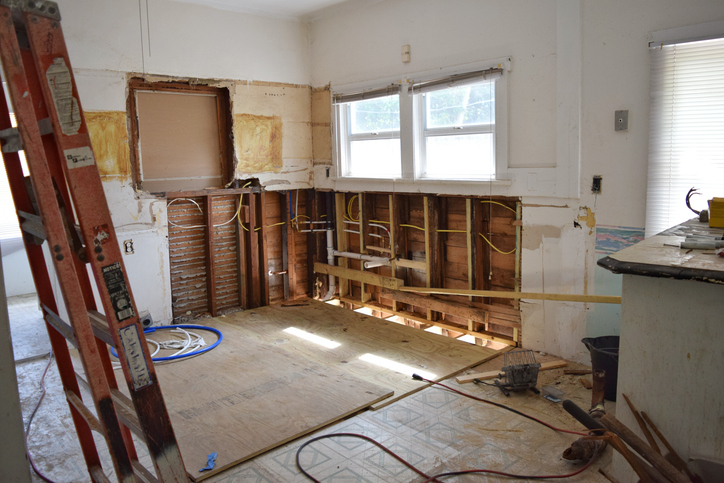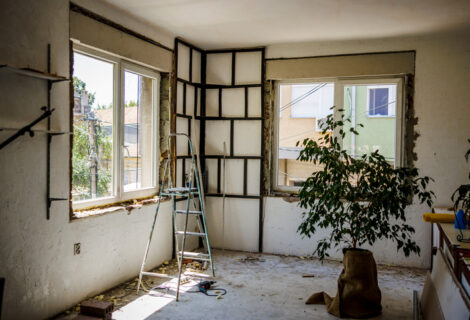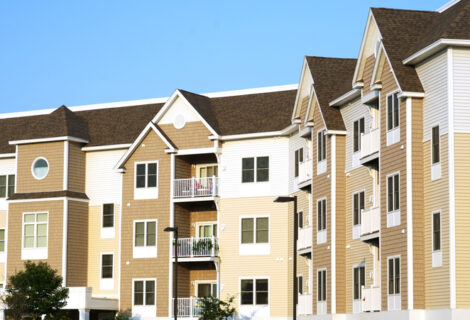To Rent or Sell? Your Property Rehab Decision Guide
After months of hard work rehabbing your property, you’re finally at the point where everything looks perfect. But now comes the tough decision—do you rent it out or sell it? This choice is critical for real estate investors, property developers, and homeowners alike. Each path has its own rewards and challenges, and the best choice often depends on your specific goals and market conditions.
This guide will help you understand the benefits of both renting and selling your renovated property, providing you with insights to make a well-informed decision that aligns with your financial and personal objectives.
The Case for Selling
Immediate Profit
Selling your flipped property offers instant gratification. You can quickly turn your investment into cash, which can be particularly appealing if you need a rapid return on your investment. With real estate prices generally on an upward trend due to low supply, selling now could result in a hefty profit.
Capital for New Real Estate Investments
By selling, you unlock a significant amount of capital that can be reinvested into new projects. This allows you to keep your investment cycle moving, ensuring your money is continuously working to generate returns. Selling at the right time could also provide you with the necessary funds to capitalize on other lucrative opportunities in the real estate market.
Risk Management
The real estate market can be unpredictable. By selling immediately after rehabbing, you can avoid the market’s ups and downs and sidestep potential losses. You get your profits upfront, which helps protect your investment against any sudden market changes that might negatively impact your returns.
The Case for Renting
Long-Term Wealth Building
Renting out your property provides a steady stream of cash flow, offering financial stability over time. The “Buy and Hold” strategy is popular among investors because it combines reliable monthly rental income with the potential for property value appreciation over the years. It’s a smart way to gradually build wealth while maintaining a consistent cash flow.
Tax Advantages
Owning rental property allows you to take advantage of several tax benefits, including depreciation. Depreciation can offset rental income, reducing your overall tax liability. This can significantly enhance your financial health by lowering the amount of taxes you owe on your rental income. Consulting a tax professional can help you understand the full scope of these tax benefits.
Market Influence
Holding onto a property in an area experiencing population growth or a rental market shortage can yield significant long-term returns. As rental prices increase, your investment becomes more profitable. This is particularly true in booming cities or emerging neighborhoods, where demand for housing often exceeds supply. By renting out your property in such markets, you can enjoy a steady rise in rental income over time.
Incorporating Market and Financial Analysis
Assess Local Demand
Understanding the local real estate market is crucial for making informed decisions. If your area is experiencing an influx of new residents due to job opportunities, the demand for rentals might be high. This can translate into higher rental rates and lower vacancy rates.
To better understand local dynamics, you can:
- Research local market trends using platforms like Zillow, Trulia, or Realtor.com.
- Engage with local real estate agents to get insights into buyer and renter behaviors.
- Attend community meetings to stay informed about upcoming developments.
- Analyze local economic factors, such as employment rates and business growth.
- Monitor rental listings to gauge demand and rental rates.
Economic Indicators
Economic factors like job rates, interest rates, and overall economic health play a significant role in deciding whether to rent or sell. A strong job market can boost home buying, while high interest rates can make borrowing more expensive, increasing rental demand. Monitoring these indicators can help you make a more informed decision based on current economic conditions.
Return on Investment (ROI) Calculations
Analyzing the ROI for both renting and selling is essential for making a financially sound decision. Consider all costs, including maintenance, management fees, and taxes, to compare the potential returns from selling versus renting. This detailed analysis will provide a clearer picture of the financial implications of each option.
Cash Flow Analysis
Assess your immediate and future capital needs. If you require quick cash for other investment opportunities, selling might be the better choice. Selling provides a lump sum that can be reinvested into new projects, potentially yielding higher returns. On the other hand, if you prefer a steady income stream, renting can provide regular monthly income, aiding in long-term financial planning.
Strategic Decision-Making
Property Appeal and Market Timing
The extent of your rehab and the property’s location can significantly impact its market appeal. Highly desirable, well-rehabbed properties in prime locations may fetch higher prices if sold immediately. Conversely, holding onto properties in up-and-coming neighborhoods can yield substantial returns as the area develops.
Finding the Right Financing for Your Investment Strategy
When deciding between renting and selling, the type of financing you leverage can influence your decision. Traditional loans from banks may not offer the flexibility needed for real estate investors. Hard money loans, however, provide quicker approval processes and more flexible terms, making them an attractive option for time-sensitive deals.
Traditional vs. Hard Money Financing
Traditional financing options require extensive documentation and longer approval times. In contrast, hard money loans offer quicker approvals and tailored solutions for investors, making them ideal for securing time-sensitive deals.
Benefits of Hard Money Loans
Hard money loans provide several advantages, including faster approval processes and the ability to compete with cash offers. These loans can close quickly, often within days, giving you an edge in competitive real estate markets.
Let Us Guide You
Deciding whether to rent or sell your rehabbed property involves careful consideration of various factors, including immediate profit potential, long-term wealth building, tax benefits, and market conditions. By thoroughly analyzing your financial goals and market dynamics, you can make an informed decision that aligns with your investment strategy.
Whether you choose to sell for immediate returns or rent for steady cash flow, understanding the pros and cons of each option will help you achieve your real estate investment goals. For personalized advice and further insights, consider consulting with real estate professionals or financial advisors who can provide tailored guidance based on your unique situation.





